Rigoberto Uran: Fame means nothing to me, I just love racing my bike
Exclusive interview with the Tour de France contender
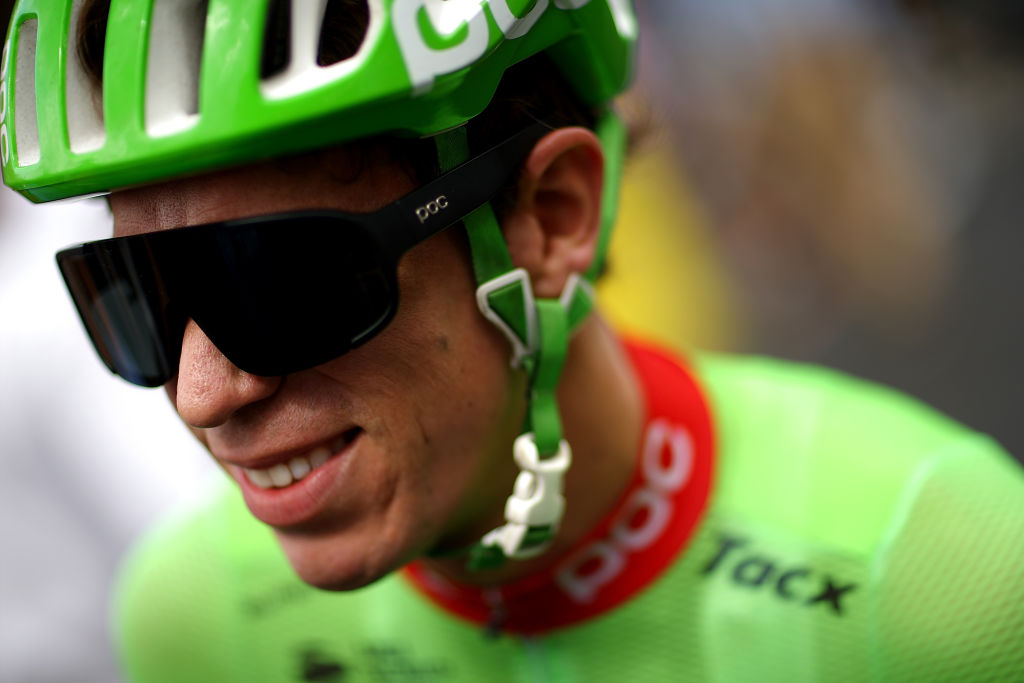
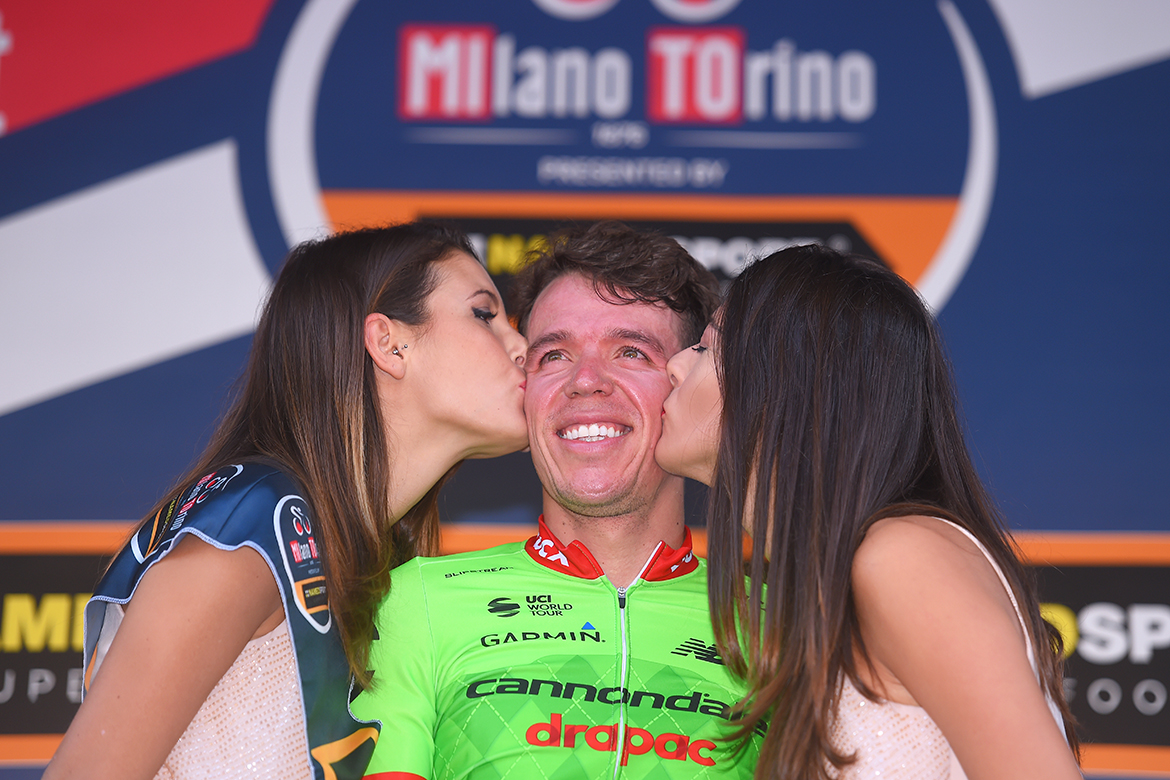
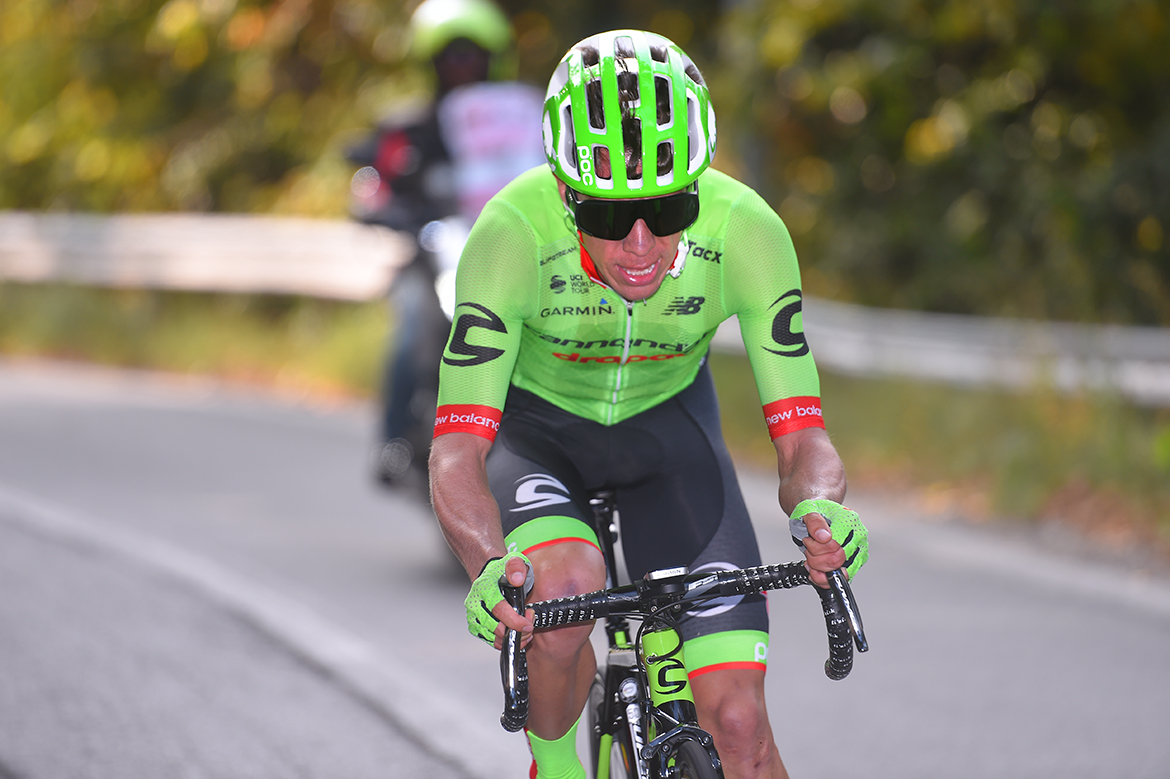
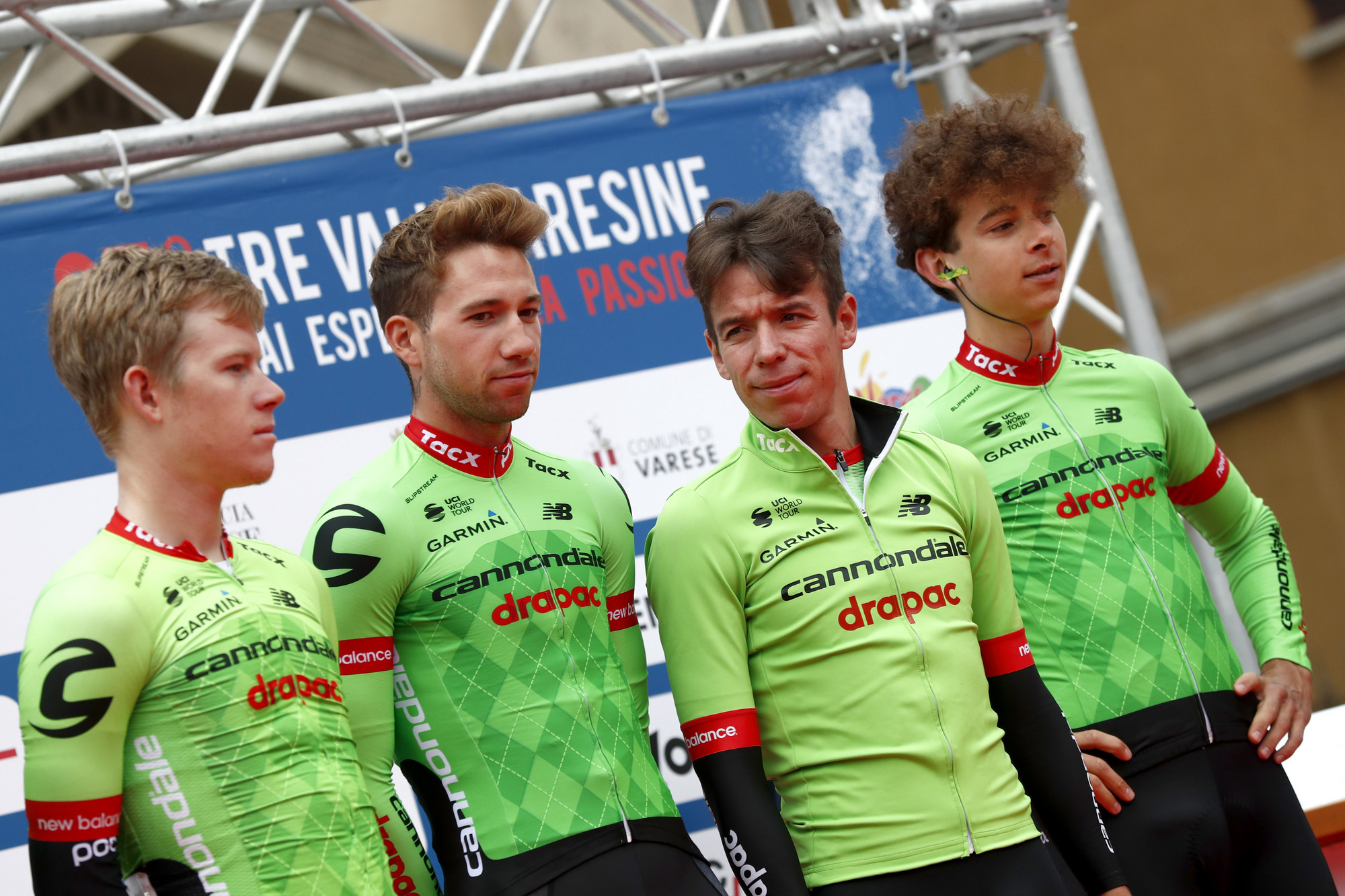
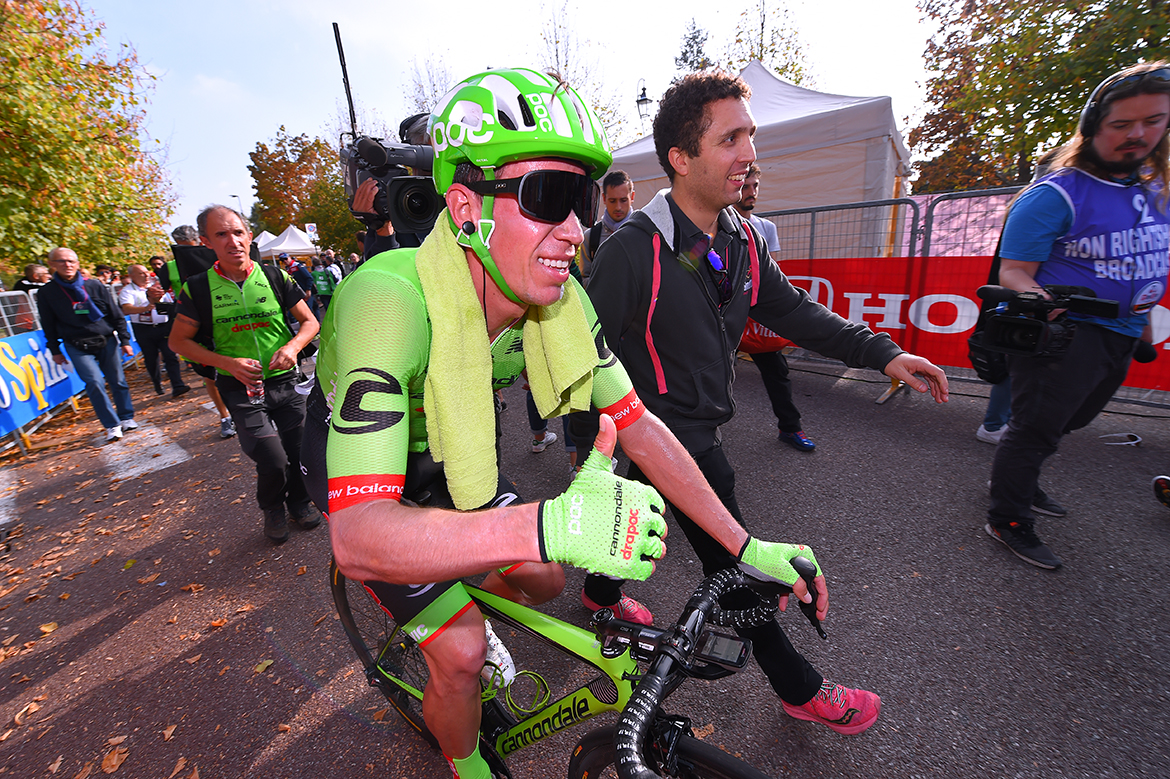
Rigoberto Uran can often be elusive during races, and was especially so at this year's Tour de France. He preferred to quickly escape the attention of the Colombian media and anyone who sought to ask him about his race, how he would topple Chris Froome or what his second place overall meant for his future. Uran avoided any pressure with a quick sound bite, a laugh and a quick turn of the pedals.
Uran is not aloof and unfriendly. Quite the contrary. But he has no desire to waste time or energy thinking about the past, the future or things out of his control. He enjoys living for the moment.
Uran’s real character emerges away from the big races. He still laughs and smiles just as he did on the Tour de France podium in Paris but is more contemplative, revealing why his character and ability combined so well in 2017 and helped him finish just 54 seconds behind Froome at the Tour.
“This has been a great season for me, but I always say that every season has been great, no matter what results I achieve,” he says in a mix of Spanish and Italian and with a shrug of the shoulders.
“My personal happiness and my family’s happiness doesn’t depend on if I win a certain race or not. I know I’m paid to win, that’s part of professional sport, but I race without worrying about ‘having’ to win. If I do win, great but if I don’t, it’s not the end of the world. It’s more important to know that I’m healthy and happy. I just hope to carry the success and consistency of this season. What else could I want?”
“Some riders don’t seem to enjoy themselves when they’re focused on their racing, they see everything as being a battle, with themselves or with others. I don’t think that way. We’ve got to live our lives as well as possible. That’s why fame means nothing to me. I just love racing my bike and being a professional rider. I think we’re all human beings and that we’re all the same. I think the most important thing in life is to do what you love. Otherwise it all becomes too hard.”
Uran’s optimistic approach to life no doubt comes from his difficult childhood in Colombia.
Get The Leadout Newsletter
The latest race content, interviews, features, reviews and expert buying guides, direct to your inbox!
His father was killed when he was just 14. He used his cycling talents as a teenager to build a better life for himself his family, and he turned professional in Italy at 19 for the same reason.
He started racing in Europe with the tiny Tenax team in 2006 thanks to fellow Colombian Marlon Perez, and then was picked by Unibet in 2007. Despite having to often race in Belgium and suffering two fractures, he won the time trial stage at the Euskal Bizikleta and then a stage at the Tour de Suisse.
Unibet soon disappeared, but Uran was signed by Caisse d’Épargne and then Team Sky in 2011. Despite struggling to speak English, he soon showed his stage race talents with the British team. He finished seventh at the 2012 Giro d’Italia and was the best young rider. He famously finished second to Alexander Vinokourov in the road race at the 2012 London Olympics and confirmed his Grand Tour credentials with second overall at the 2013 Giro d’Italia.
He repeated the result after moving to Quick-Step Floors in 2014, wining the hilly Barolo time trial and wearing the pink jersey for four days, losing it to eventual winner Nairo Quintana when he attacked on the neutralised descent of the snow-covered Stelvio.
A difficult 2015 season, where Uran rode the Giro d’Italia and Tour de France but won the Gran Prix Cycliste du Quebec, led to his move to Cannondale, but he struggled with bronchitis at the 2016 Giro d’Italia, fighting to finish seventh.
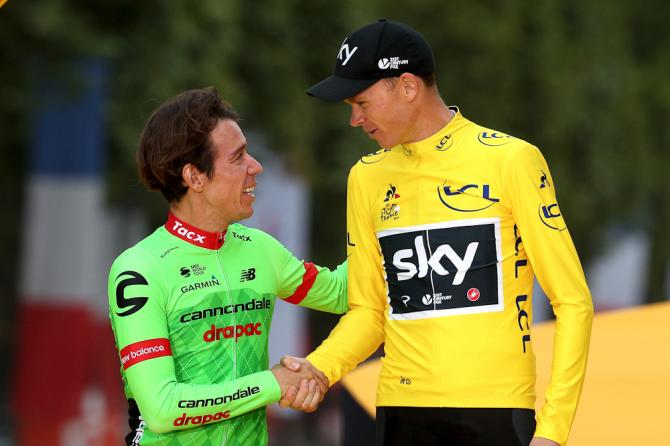
Rigoberto Uran congratulates Chris Froome on the 2017 Tour podium. (Getty Images Sport)
All or nothing at the 2017 Tour de France
As other Grand Tour contenders emerged, Uran’s career seemed to be fading as he approached 30. But he came back better than ever this season, with the Cannondale-Drapac team giving him the freedom to focus on the Tour de France. It was a somewhat risky strategy for both Uran and the US team, but it was a decision based on experience and was executed with careful planning.
“It was all or nothing, but it paid off pretty well,” Uran admits.
“After riding for Team Sky and Quick-Step Floors in multiple Grand Tours, I think I know myself pretty well and know what I can and can’t do. I know that I can achieve a certain result if I’m on form and feeling good. And I had great form at the Tour.
“There’s a lot of expectation when you’re a team leader at the Tour de France, but I never felt under pressure this year. It’s important that when you feel good you’ve got to take advantage of the moment.”
“I think I had a great Tour but the strongest rider always wins the Tour. It would have been hard to beat Froome this year. He’s strong and Team Sky was even stronger. I would have needed something to happen to him, but Froome has won the Tour four times now. He knows how to win and handle any difficult moments.
“He always had two or three teammates with him on every big climb. You can attack a couple of times in situations like that, but Team Sky always had the riders to control the race.”
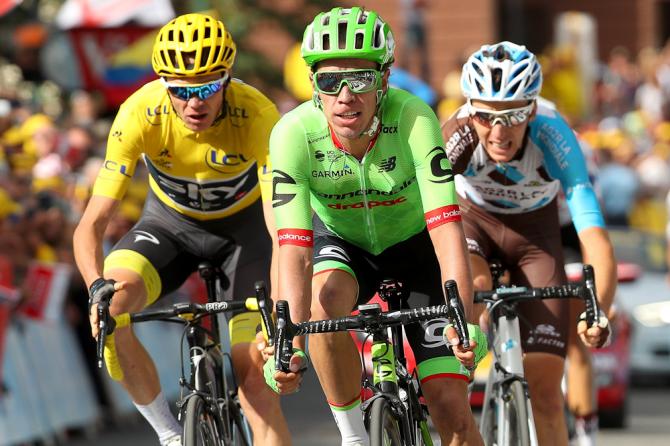
Uran finishes stage 17 at the Tour ahead of Froome and Bardet. (Getty Images Sport)
Giving Vaughters time to find a new sponsor
Uran’s second place in the Tour de France naturally attracted a lot of attention from the leading teams looking for a Grand Tour leader, and it gave the Colombian several options for arguably the biggest contract of his career.
Trek-Segafredo, UAE Team Emirates and Astana were possible options, but Uran and his agent Giuseppe Acquadro opted to stay with Cannondale-Drapac, inking a three-year contract at the Colorado Classic in mid-August that gave him more freedom and more security without overdue pressure and expectation.
However, less than two weeks later, that contract appeared worthless after a possible new sponsor backed out and team manager Jonathan Vaughters informed his riders they were free to look for new contracts.
Several teams immediately showed interest in Uran again, and he could easily have jumped ship to quickly secure his own future. Yet he agreed to give Vaughters two weeks to find a new sponsor. It proved to be a vital gesture for the future of the team, and EF Education First came on-board knowing they had a Tour de France leader.
“I decided it was only right to wait those two weeks and see if a new sponsor came on board to save the team. It was important to save the team because cycling can’t afford to lose another good team.” Uran says altruistically.
“I was the one who finished second in the Tour de France, but to get that result I needed the team, I needed the help of my teammates, of the directeur sportif, the soigneurs, the mechanics and all the staff. You can be the strongest rider in a race, but you can never win on your own in cycling.”

Stephen is one of the most experienced member of the Cyclingnews team, having reported on professional cycling since 1994. He has been Head of News at Cyclingnews since 2022, before which he held the position of European editor since 2012 and previously worked for Reuters, Shift Active Media, and CyclingWeekly, among other publications.